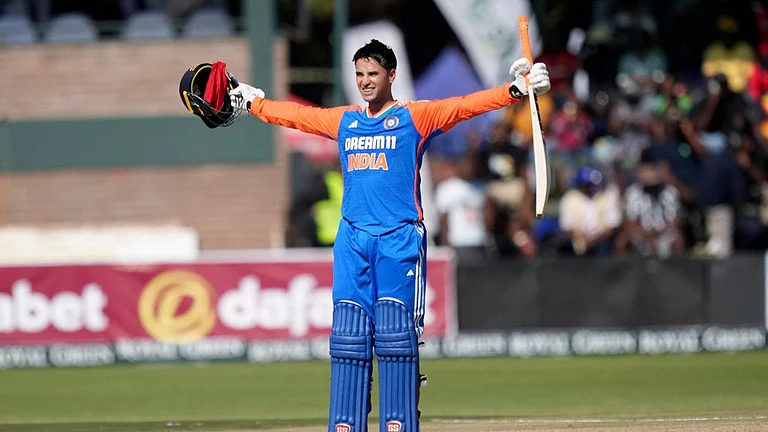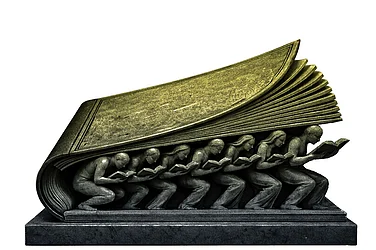History, especially of India’s medieval period, needs correction. For a long time and for well-intentioned reasons, there was an attempt to downplay the degree of destruction of Hindu artefacts, temples and centres of learning by Turkic invaders and subsequent Islamic rulers. The argument was put forward that this was largely in the nature of loot and plunder which was a common feature of medieval conquests. But, as I have said in my book, The Great Hindu Civilisation, there was a great deal of savagery and destruction that was motivated by religion or religious hostility and proselytisation. Will Durant, the renowned historian and the author of the Story of Civilization, says, “The Mohammedan conquest of India is probably the bloodiest story in history.” The Islamic conquest of India in the eleventh century CE left Hindu India physically destroyed and psychologically traumatised. Nevertheless, first and foremost, there is a need to accept history.
However, a school of writers and historians is committed to portraying the Islamic invasion as some kind of great syncretic carnival, in which the invaders came and feasted on local delicacies while the conquered ate a happy morsel of biryani, and both sat down to work out the Ganga-Jamuni tehzeeb that we so highly value today. But that cherished tehzeeb came up in spite of great damage and destruction. Historical truths cannot be erased, denied or crossed over because suppression creates an equal and more dangerous counter-reaction. Hence, reconciliation with history is best done by acceptance.
Furthermore, we need to bust the stereotypes of history. For instance, Amir Khusrau (1253–1325), the great Sufi saint by many accounts, is undoubtedly the progenitor of Hindavi and is said to have enabled Khari Boli, the precursor to the Hindi spoken today. He is also widely known as the father of Urdu literature and qawwali, and is possibly the inventor of musical instruments like the sitar and tabla too. A mystic and a spiritual disciple of Nizamuddin Auliya of Delhi, Khusrau has contributed to the Ganga-Jamuni tehzeeb in myriad ways. Nevertheless, at the same time, Khusrau was also associated with the royal courts of at least five rulers of the Delhi Sultanate, the most important among whom was Alauddin Khalji. In this capacity, he wrote extensively about the conquests of these sultans and their destruction of the temples of kafirs. In his book Khaizan ul Futuh, he describes the destruction of the temples with blatant triumphalism and praise.
Some academics and scholars hold and extol Akbar’s reign as a template for much of Islamic rule in India. It is true to some extent that the Mughal emperor showed an eclectic side to Islamic rule—abolished the jizya tax on Hindus, was married to a Hindu princess, had Hindu ministers like Birbal and Todar Mal in his court and allowed Hindus to have their own judicial court and personal laws. Unlike other Muslim rulers, Akbar was open to religious dialogue between scholars of different faiths under Din-i-Ilahi, a syncretic religious platform he created, and he followed the more inclusive Chishti school of Sufism.

There is no denying, whatsoever, in saying that Akbar was a great ruler and he rose above the rigidity of orthodox principles and religious exclusion, but at the same time, he cannot be cited as the person who laid the foundations of the secular legal structure and the religious neutrality of the state. His religious permissiveness faced staunch opposition from the powerful orthodox Islamic clergy, the Ulema, who declared him heretic and even issued a fatwa for all Muslims to revolt against him.
The emperor’s personal tolerance was not shared by other members of the ruling Muslim elite. His son Jahangir was not in support of his broadmindedness either, and his grandson Shah Jahan was openly intolerant. In other words, while extolling the greatness of Akbar, we must balance the narrative and not look away from what the rule of his successors looked like.
For some reason, post-1947, the imagination of our historical canvas exhibits great limitations. For instance, in the capital city of India we have roads named after Mughal emperors. In this unidimensional narrative, why couldn’t we have roads named after the Rajaraja Chola, Krishnadevaraya, Maharana Pratap or Shivaji? Why were we taken up so much by the emperors who ruled Delhi only? What about a road in the name of Mirza Ghalib, Tulsidas, Kabir or Thiruvalluvar? It is not about Hindu-Muslim, it is about balance. Why are not the roads named after the kings who ruled in the southern parts of the subcontinent? This is a very restricted and insular regional approach to history.
Nevertheless, while history needs correction, the historical past does not need a resurrection to create disharmony for partisan political ends today, as the BJP and its foot-soldiers are seen to be intent on doing. We don’t need to excavate the acrimony of the past. Rather, we need to be honest about it, accept it and move beyond it. Several countries have suffered atrocities in their own ways. For instance, South Africa, which was fraught with apartheid. They did not excavate history and take revenge on innocent people today who have nothing to do with what happened in the past.
Instead, they set up a Truth and Reconciliation Commission, by which they went beyond history by accepting it and refusing to allow it to vitiate the secular fabric of a constitutional republic. So, the tragedy is that the BJP, to garner short-term political dividends, is encouraging forces who are trying to find a Shivling under every mosque, as the RSS supremo Mohan Bhagwat himself tried to warn them about. The tragedy is that the foot-soldiers of the BJP, in the form of the Bajrang Dal, are no longer in their control. So a country that needs to reconcile with history and build a modern republic is again being held hostage to a past that needs to be accepted. This is only hurting India’s ability to go beyond history.
(This appeared in the print edition as "Time to Reconcile and Move Ahead")
(Views expressed are personal)
(As told to Peerzada Muzamil)
Pavan Varma is an author, a former diplomat and a politician





















